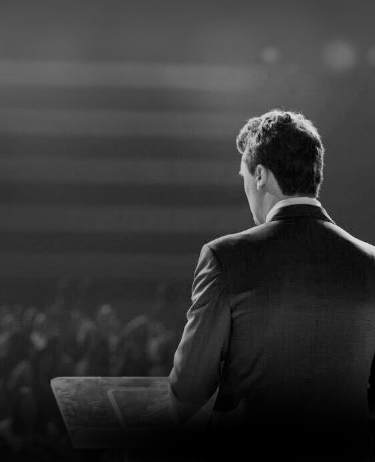Triggered Censorship Enthusiast Sam Harris Explains Why He Left Twitter
Charlie Kirk Staff
12/02/2022

Disgraced intellectual Sam Harris gave his reasoning for leaving Twitter last week, though he said that it wasn’t directly due to Elon Musk’s takeover of the big tech platform.
Harris said that many interpreted his leaving Twitter as an act of protest after Musk reinstated Trump.
“I’ve heard that many people are interpreting my leaving Twitter as an act of protest over what Elon is doing to the platform. In particualr, his reinstating of Trump. It really wasn’t that. I do think Elon made some bad decisions right out of the gate, and Twitter did get noticably worse, at least for me.
“But, I’m actually agnostic as to whether he will ever be able to improve the platform. I doubt he’ll ever solve the problem I was having, but he might make Twitter better for many people, and he might make it a viable business. He certainly has the resources to keep at it, even if advertisers abandon Twitter for years.
“So, my leaving Twitter wasn’t some declaration that I know, or think I know, that Elon will fail to make Twitter better than it currently is. I have no idea what’s going to happen to Twitter. Rather, the lesson I was drawing from Elon was not that he was making Twitter worse by making capricious changes to it. The less was that how one of the most productive people of my generation was needlessly disrupting his own life and damaging his reputation by his addiction to Twitter. This has been going on for years. Elon’s problem with Twitter is different than mine because he uses it very differently.
Harris then put his crosshairs on Elon Musk, who he said spends most of his time “goofing around,” and that he amplifies the voice of people like Kanye West, who has recently gone down an antisemitic rabbit hole.
“He spends most of his time goofing around, but he’s now goofing around in front of 120 million people, so when he’s high-fiving anti-Semites and election deniers, or bonding with them over their fake concerns about free speech, he doesn’t appear to know or care that he’s increasing their influence. In many cases, he might not have any idea who these people are, of course, and in others like with his friend Kanye, he obviously does.
“There is something quite reckless and socially irresponsible about how Elon behaves on Twitter. Millions of people appear to love it.
Harris then addressed his views on Free Speech, where he said that he believes there is a new conversation to be had around free speech in the age of social media and the role that it plays in society. He refutes Musk’s vision of Twitter, that it serves as a public square of sorts. He says it’s a private platform and that Musk can do what he wants with it, but that Musk’s vision is not of free speech.
“I should probably address the free speech issue briefly. There’s a lot more to say about this, but before I left Twitter I noticed that people seemed really confused about what I believe about free speech, and Twitter being Twitter, it proved impossible for me to clear up that confusion. Many seem to think that I used to support free speech unconditionally, like when I was defending cartoonists against Islamist censors… But somehow I don’t support it, because I supposedly have Trump Derangement Syndrome. Well first, I’ve always acknowledged that there’s an interesting debate to be had about the role that social media plays in our society, and I’m not going to resolve that debate here by myself, but the fact is, no one has a constitutional right to be on Twitter. In my view, the logic of the first amendment runs in the opposite direction. It protects Twitter’s new owner, Elon, from compelled speech. The government shouldn’t be able to force Elon to put Alex Jones back on the platform, any more than it should be able to force me to host Alex Jones on the podcast.
“… Twitter simply isn’t the public square. It is a private platform. Elon can do whatever he wants with it. If we want to change the laws around that, then we have to change the laws. I understand and fully support the political primacy of free speech in America, and I’d like the American standard to be the global norm, that’s why I think there shouldn’t be laws against holocaust denial or the expression of any other idiotic idea, and the first amendment protects this kind of speech, at least in the United States. But there also shouldn’t be a law, in my view, that prevents a digital platform from having a “no nazis” policy in its terms of service. These platforms need effective moderation and standards of civility to function,” he said.
 Member
Member













